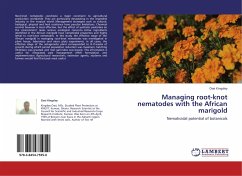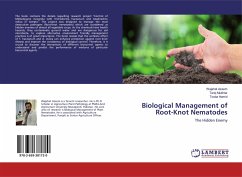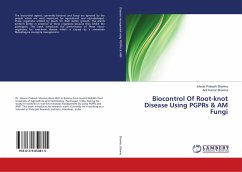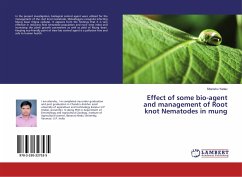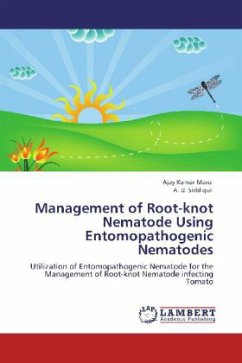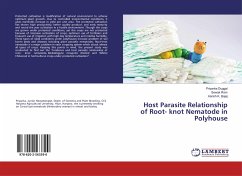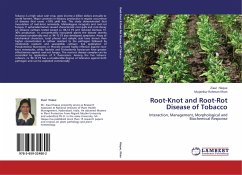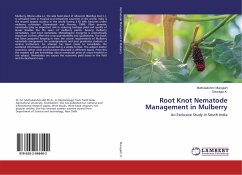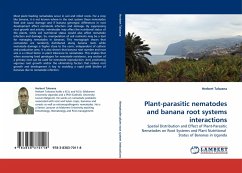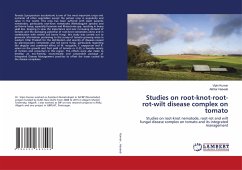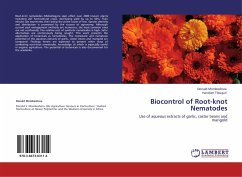
Biocontrol of Root-knot Nematodes
Use of aqueous extracts of garlic, castor beans and marigold
Versandkostenfrei!
Versandfertig in 6-10 Tagen
32,99 €
inkl. MwSt.

PAYBACK Punkte
16 °P sammeln!
Root-knot nematodes (Meloidogyne spp) affect over 2000 known plants including 207 horticultural crops, decreasing yield by up to 50%. Their minute size exonerates their being the prime cause of loss. Species diversity and distribution is promoted by the success of agronomy. Although current pest management methods are numerous, the most common ones are not ecofriendly. The relative cost of synthetic nematicides is high. Safer alternatives are continuously being sought. This work presents the application of botanicals as nematicides. The nemastatic and nematoxic potential of the aqueous extract...
Root-knot nematodes (Meloidogyne spp) affect over 2000 known plants including 207 horticultural crops, decreasing yield by up to 50%. Their minute size exonerates their being the prime cause of loss. Species diversity and distribution is promoted by the success of agronomy. Although current pest management methods are numerous, the most common ones are not ecofriendly. The relative cost of synthetic nematicides is high. Safer alternatives are continuously being sought. This work presents the application of botanicals as nematicides. The nemastatic and nematoxic potential of the aqueous extracts of garlic, castor beans and marigold are compared. Findings herein are expected to present other ways of combating root-knot nematodes, knowledge of which is especially useful in organic agriculture. The potential of botanicals is also documented for the academia.



